10.4 Scenes from Twelfth Night or What You Will (1601) in Art and Verse
“If music be the food of love, play on…” (Shakespeare, (1601), Twelfth Night, 1.1.).
Twelfth Night is considered one of Shakespeare’s most musical and poetic play. Often referred to as a problem play, Twelfth Night defies the traditional comedies and romances and tragic overtones are hidden beneath the play’s festive surface. The often desperate and unsuccessful search for true love, a purposeful life, loneliness and isolation, self-deception, lost opportunities, vanity, revenge, ageing, and the frailties of life are central to the play. There is a sense that time is running out and sooner rather than later, truth will have its day. Twelfth Night is a play that explore the many faces of love. Themes of deception, including self-deception and the deception of others whether through disguise, mistaken identity, or orchestrating practical jokes on unsuspecting characters, Shakespeare challenges the audience to seize life as an opportunity not to be wasted. The love triangle between Orsino (Duke of Illyria professing to be in love with Olivia) ), Olivia (the countess who has secluded herself from society and spurned the advances of Orsino), and Viola (disguised as Cesario, the Duke’s messenger). As Cesario, Viola cannot reveal her love for Orsino. Cesario is also the object of Olivia’s love. In Twelfth Night, audiences are transported to the exotic setting of Illyria (northern coast of modern day Yugoslavia) to experience the enchanting scenery and courts for Duke Orsino and Countess Olivia. The landscape paintings by Joseph Vernet evoke the “never-never land” settings of plays like Twelfth Night. George Romney, one of the great illustrators of Shakespeare’s play, was also one of the great portrait painters of the 18th century. His portrait of Lady Hamilton as Ariadne evokes an atmosphere of solitude and loneliness, not so different from the realities of Shakespeare’s characters in Twelfth Night. The search for love and perhaps the realization that time is running out and that love may be lost. Sir Andrew’s statement that “I was adored once too” (2.3). reflects the one-sided nature of love dilemma which emerges as a dominant theme in Twelfth Night or What You Will.
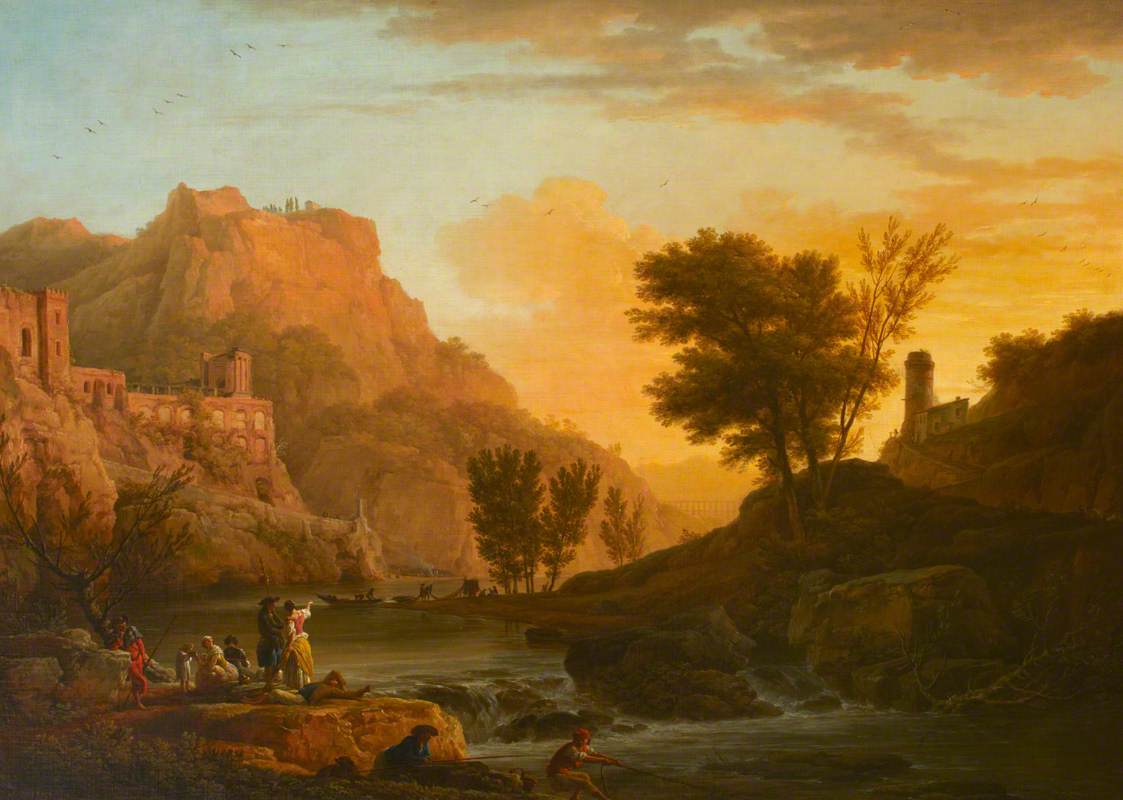
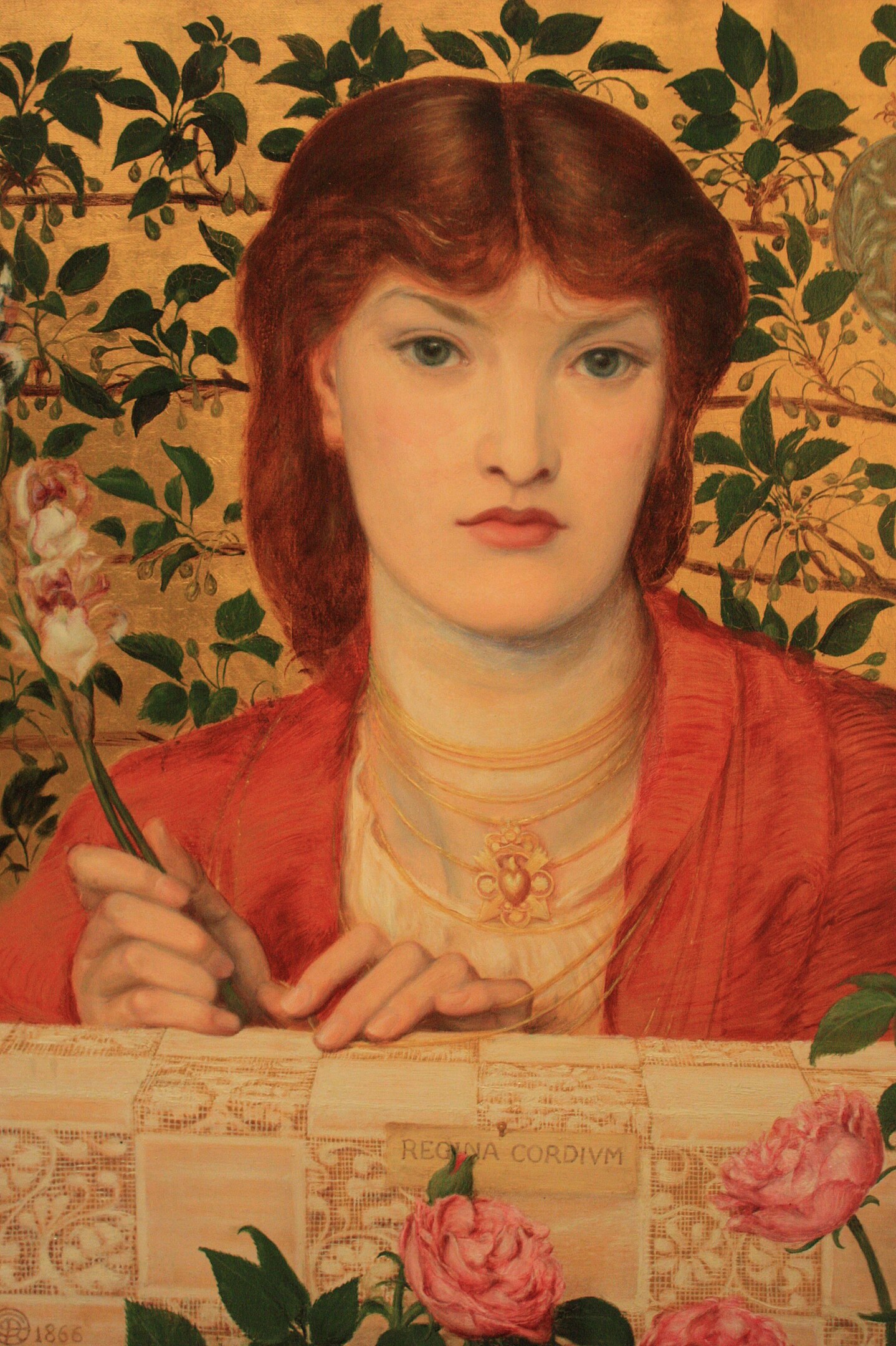
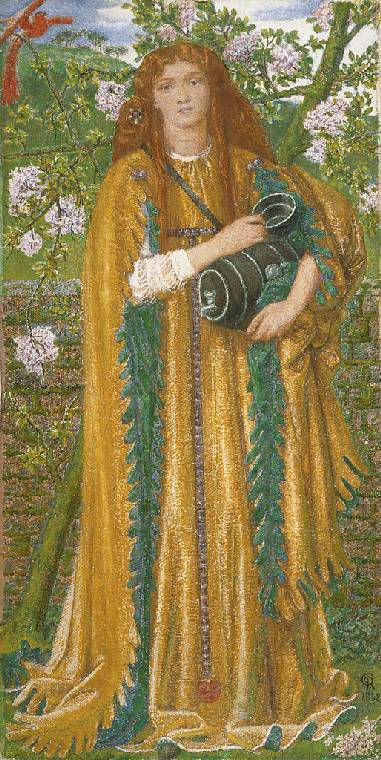
Maurice Clare (1861-1936). A Day with William Shakespeare (beautifully illustrated, Hodder & Stoughton, 1913)
“If Music Be the Food of Love, Play On” Monologue
COUNT ORSINO.
If music be the food of love, play on,
Give me excess of it; that, surfeiting,
The appetite may sicken and so die.
That strain again, it had a dying fall;
O, it came o’er my ear like the sweet sound
That breathes upon a bank of violets,
Stealing and giving odour. Enough; no more;
’Tis not so sweet now as it was before.
O spirit of love, how quick and fresh art thou,
That notwithstanding thy capacity
Receiveth as the sea, nought enters there,
Of what validity and pitch soever,
But falls into abatement and low price
Even in a minute! So full of shapes is fancy,
That it alone is high fantastical. (Shakespeare, (1601), Twelfth Night, 1. 1).
Additional Resources
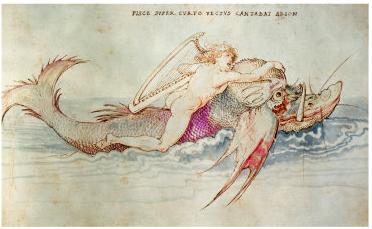
The Captain’s Assurance to Viola: Her Brother Sebastien is Alive.
Assure yourself, after our ship did split….I saw your brother
Most provident in peril, bind himself,
Courage and hope both teaching him the practice,
To a strong mast that lived upon the sea;
Where, like Arion on the dolphin’s back,
I saw him hold acquaintance with the waves
So long as I could see. (Shakespeare, (1601), Twelfth Night, 1.1). ,
In the following painting, Malvolio attends Olivia in yellow-cross gartered stockings, a colour and fashion she detests.
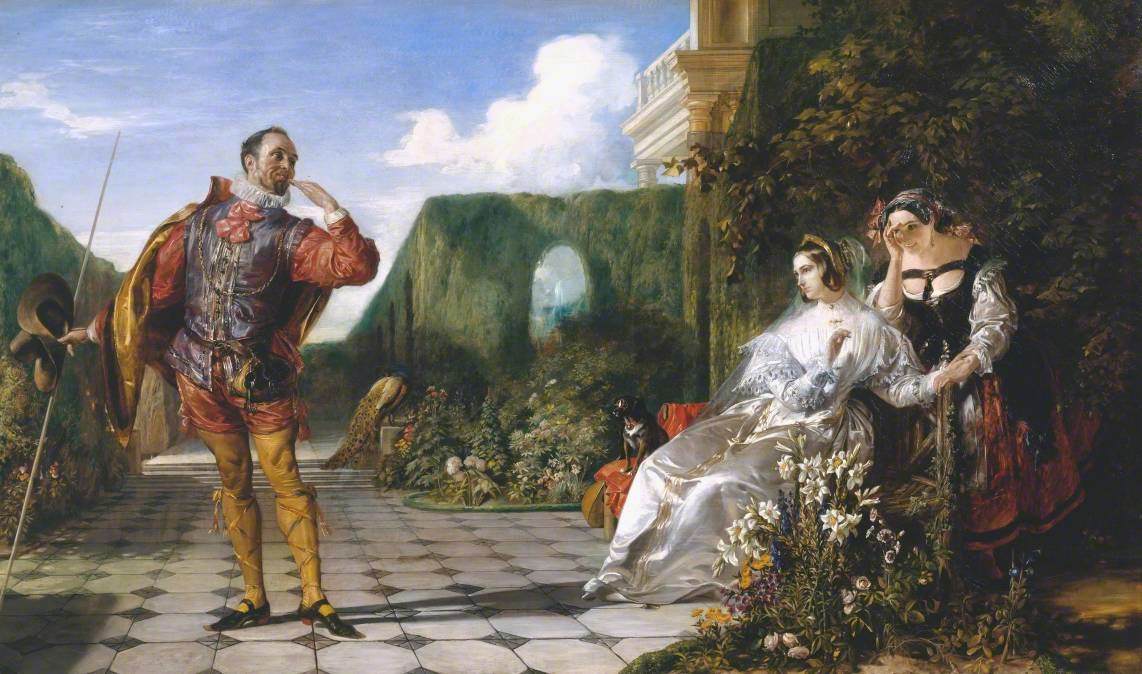
“Some are born great, some achieve greatness, and some have greatness thrust upon ‘em.” “Be not afraid of greatness: some men are born great, some achieve greatness and some have greatness thrust upon them.” (Shakespeare, (1601), Twelfth Night, 2.5).
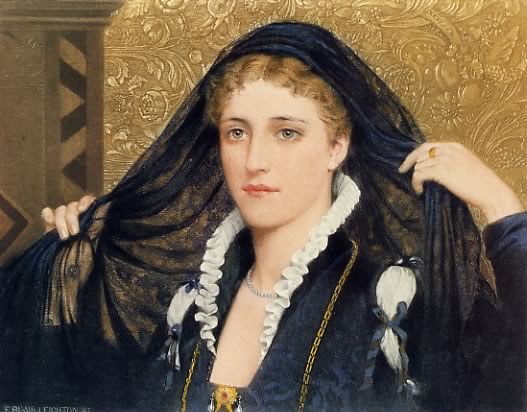
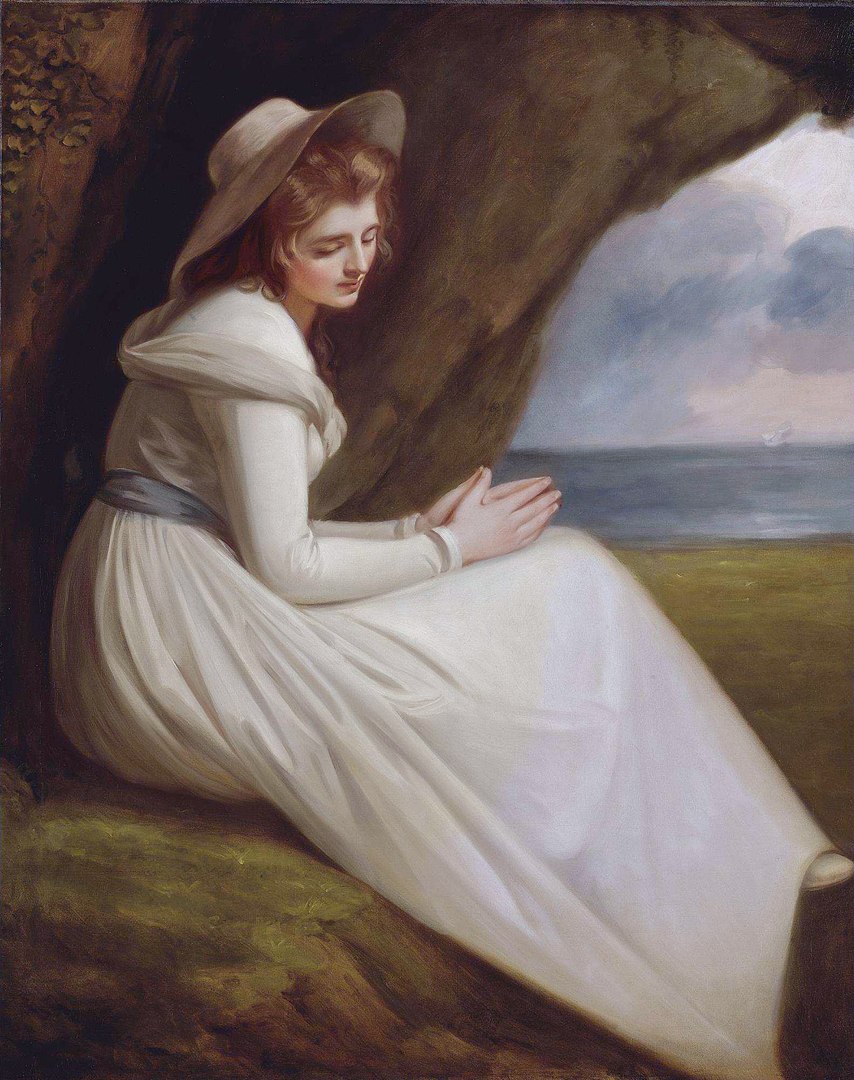
aWilliam Powell Frith (1819-1909), Olivia Unveiling Herself for Cesario (Viola), 1874. Folger Shakespeare Library. “https://commons.wikimedia.org/w/index.php?curid=40902262” by Folger Shakespeare Library is licensed under CC BY-SA 4.0.
Tis Beauty Truly Blent Monologue
VIOLA
Good madam, let me see your face.
OLIVIA.
Have you any commission from your lord to
negotiate with my face? You are now out of your
text. But we will draw the curtain and show you the
picture. She removes her veil. Look you, sir, such a
one I was this present. Is ’t not well done?
VIOLA Excellently done, if God did all.
OLIVIA ’Tis in grain, sir; ’twill endure wind and
weather.
VIOLA.
’Tis beauty truly blent, whose red and white
Nature’s own sweet and cunning hand laid on.
Lady, you are the cruel’st she alive
If you will lead these graces to the grave
And leave the world no copy.
OLIVIA.
sir, I will not be so hard-hearted! I will give
out divers schedules of my beauty. It shall be
inventoried and every particle and utensil labeled
to my will: as, item, two lips indifferent red; item,
two gray eyes with lids to them; item, one neck, one
chin, and so forth. Were you sent hither to praise
me?
VIOLA.
I see you what you are. You are too proud.
But if you were the devil you are fair.
My lord and master loves you. O, such love
Could be but recompensed though you were
crowned the nonpareil of beauty. (Shakespeare, (1601), Twelfth Night, 1.5).
Additional Resources
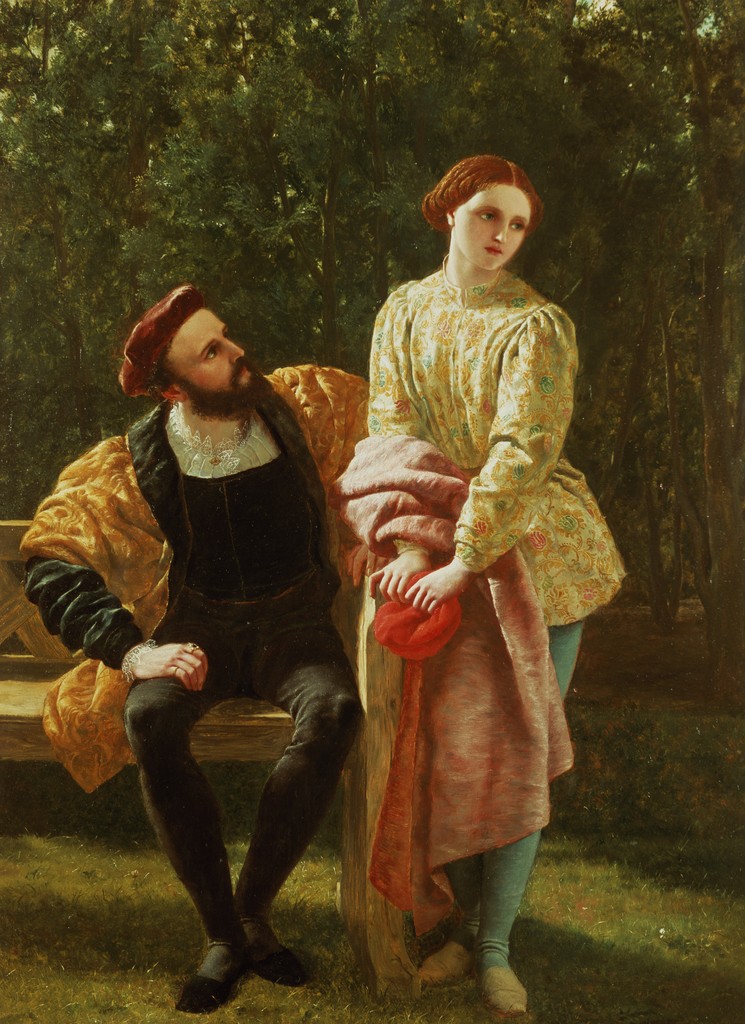
Disguised as Cesario and sent by Orsino to woo Olivia, Viola reveals her unrequited love for Orsino.
VIOLA (CESARIO).
Ay, but I know—
DUKE.
What dost thou know?
VIOLA.
Too well what love women to men may owe:
In faith, they are as true of heart as we.
My father had a daughter loved a man,
As it might be, perhaps, were I a woman,
I should your lordship.
DUKE.
And what’s her history?
VIOLA.
A blank my lord. She never told her love,
But like concealment, like a worm ‘I the bud,
Feed on her damask cheek: she pined in tough,
And with a green and yellow melancholy
She sat like patience on a monument,
Smiling at grief. Was not this love indeed?
We men may say more, swear more: but indeed
Our shows are more than will; for still we prove
Much in our vows, but little in our love… (Shakespeare, (1601), Twelfth Night, 2. 5.)
Additional Resources
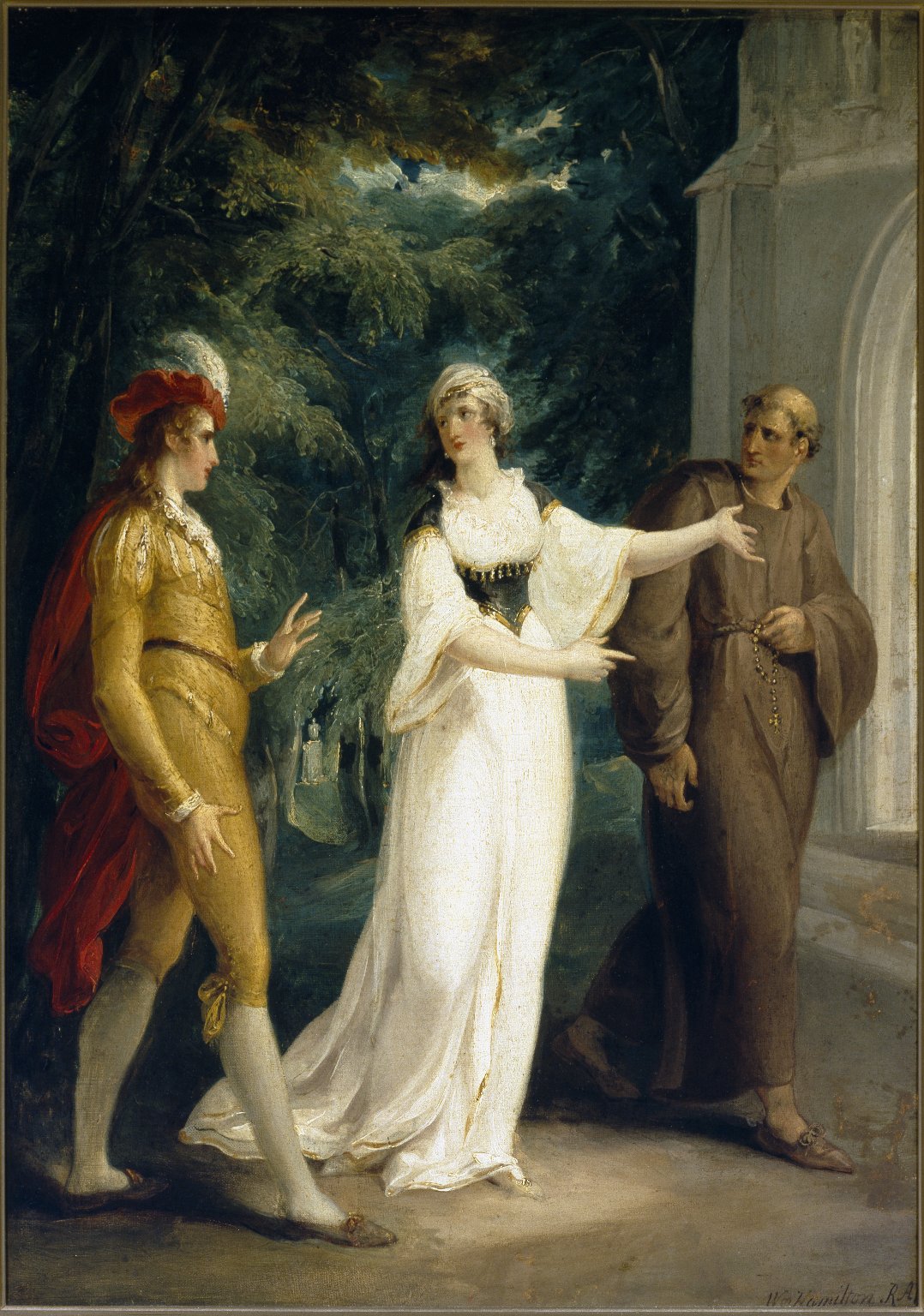
Olivia has mistaken Sebastien for Cesario (Viola and Sebastien’s “lost” twin). Sebastien is bewildered by Olivia’s inexplicable affection and familiarity. He cannot believe his good fortune.
Olivia (to Sebastien):
I prithee, gentle friend,
Let thy fair wisdom, not thy passion, sway
In this uncivil and unjust extent
Against thy peace. Go with me to my house,
And hear thou there how many fruitless pranks
This ruffian hath botch’d up, that thou thereby
Mayst smile at this. Thou shalt not choose but go.
Do not deny. Beshrew his soul for me,
He started one poor heart of mine, in thee.
SEBASTIAN:
What relish is in this? How runs the stream?
Or I am mad, or else this is a dream.
Let fancy still my sense in Lethe steep;
If it be thus to dream, still let me sleep!
OLIVIA.
Nay, come, I prithee. Would thou’dst be ruled by me!
SEBASTIAN.
Madam, I will.
OLIVIA.
O, say so, and so be!
(Shakespeare, (1601), Twelfth Night, 4.1.)
Viola, Sebastien, and Olivia
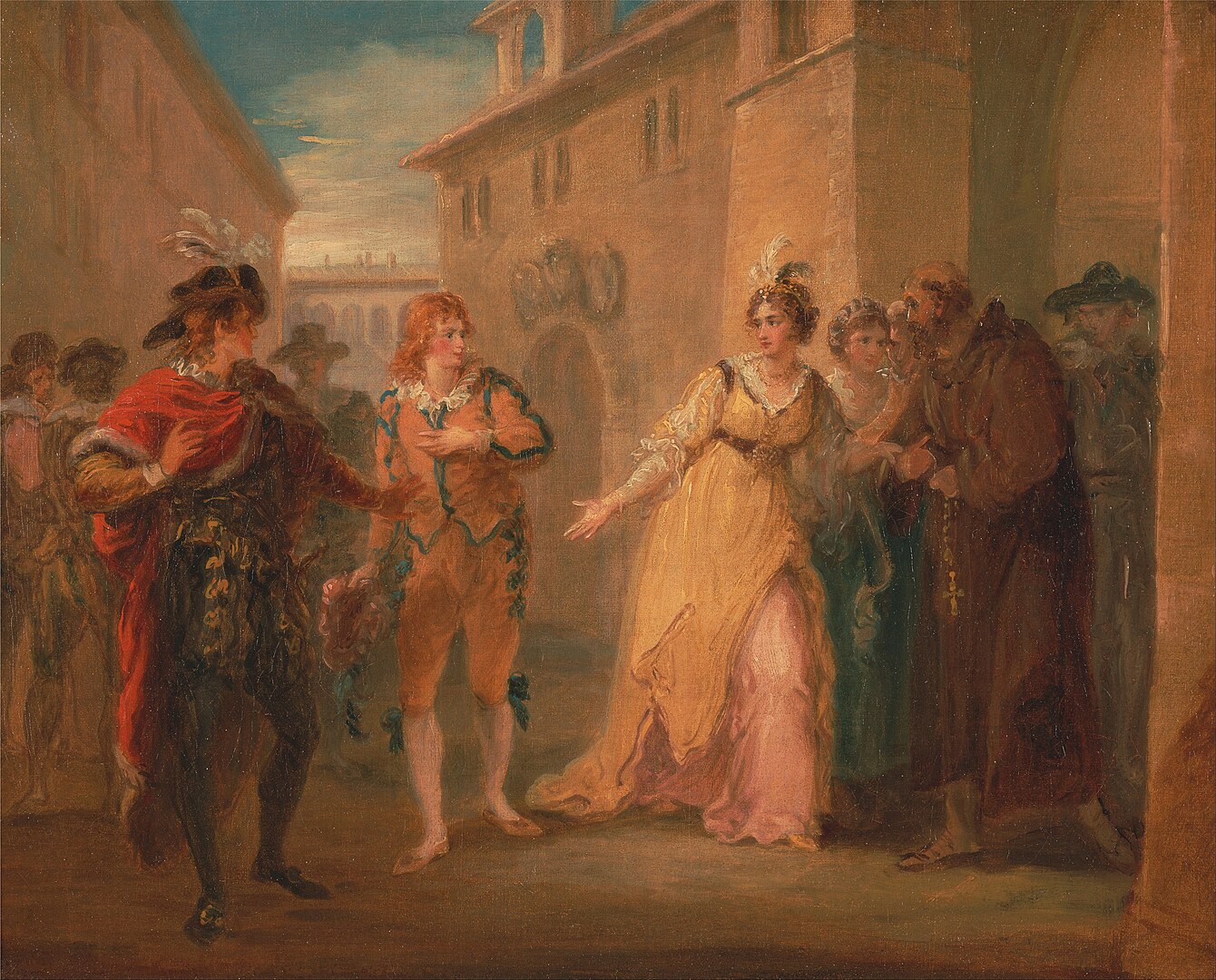
Olivia hastens to marry Cesario (Sebastien)
“Blame not this haste of mine. If you mean well,
Now go with me and it this hold man
Into the chantry by: there, before him,
And underneath that consecrated roof,
Plight e the full assurance of your faith;
That my most jealous and too doubtful soul
May live at peace…” (Shakespeare, (1601), Twelfth Night, 4. 3.)
Sebastian and Viola are Reunited
SEBASTIAN.
Fear’st thou that, Antonio?
ANTONIO.
How have you made division of yourself?
An apple cleft in two is not more twin
Than these two creatures. Which is Sebastian?
OLIVIA.
Most wonderful!
SEBASTIAN.
Do I stand there? I never had a brother:
Nor can there be that deity in my nature
Of here and everywhere. I had a sister,
Whom the blind waves and surges have devoured.
Of charity, what kin are you to me?
What countryman? What name? What parentage?
VIOLA.
Of Messaline: Sebastian was my father;
Such a Sebastian was my brother too:
So went he suited to his watery tomb.
If spirits can assume both form and suit,
You come to fright us.
SEBASTIAN.
A spirit I am indeed,
But am in that dimension grossly clad,
Which from the womb I did participate.
Were you a woman, as the rest goes even,
I should my tears let fall upon your cheek,
And say, ‘Thrice welcome, drowned Viola.’ (Shakespeare, (1601), Twelfth Night, 5.1.)

